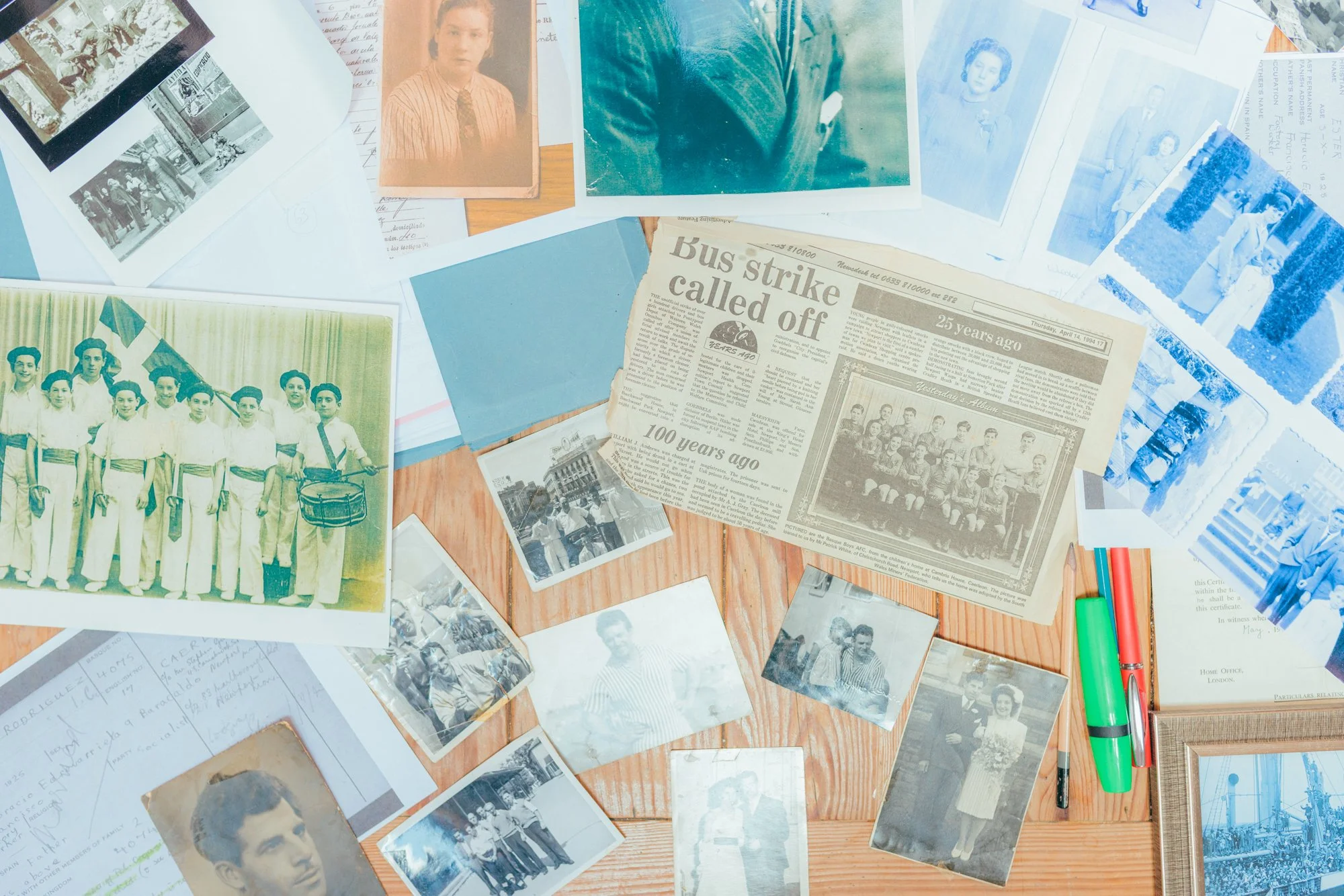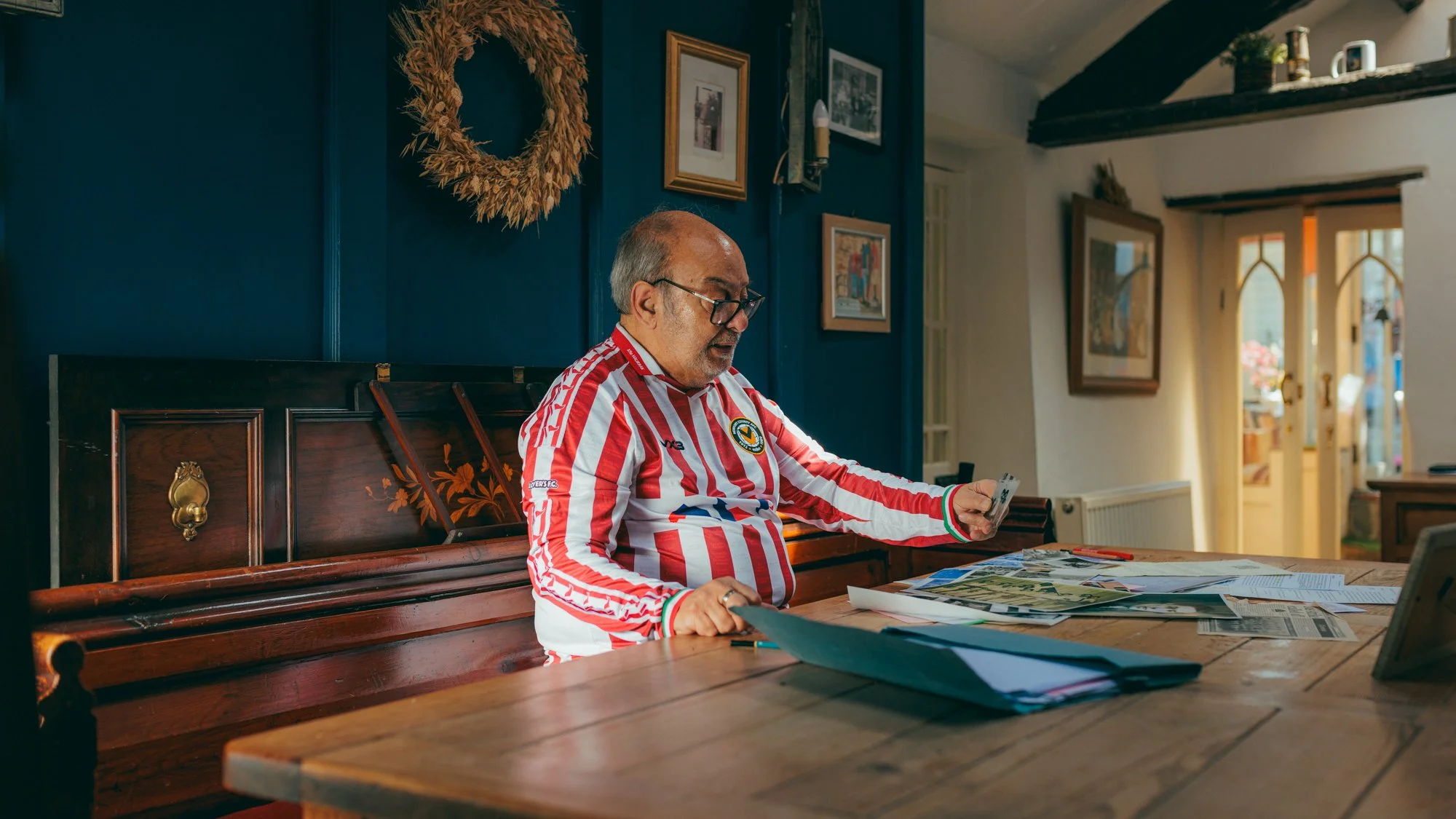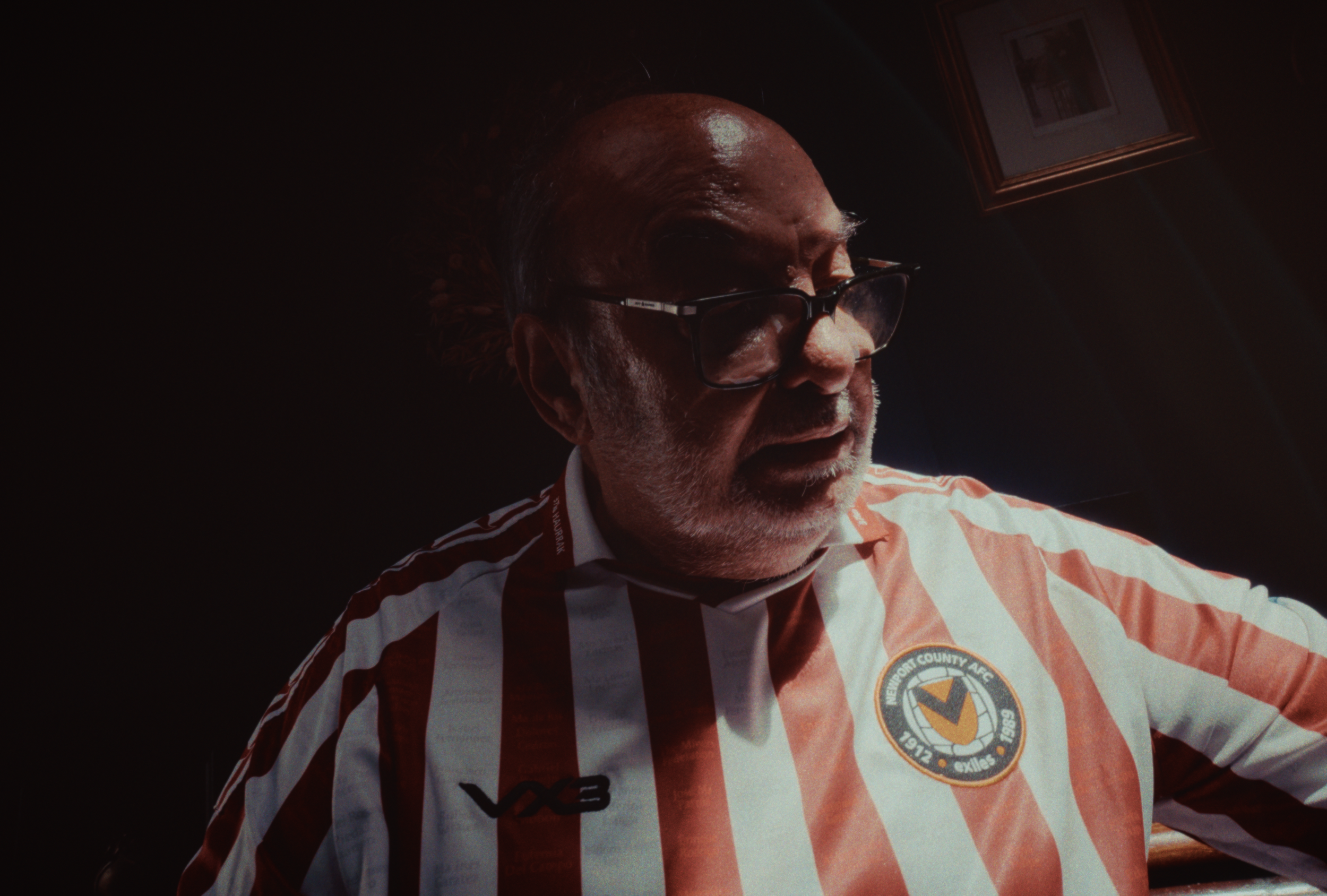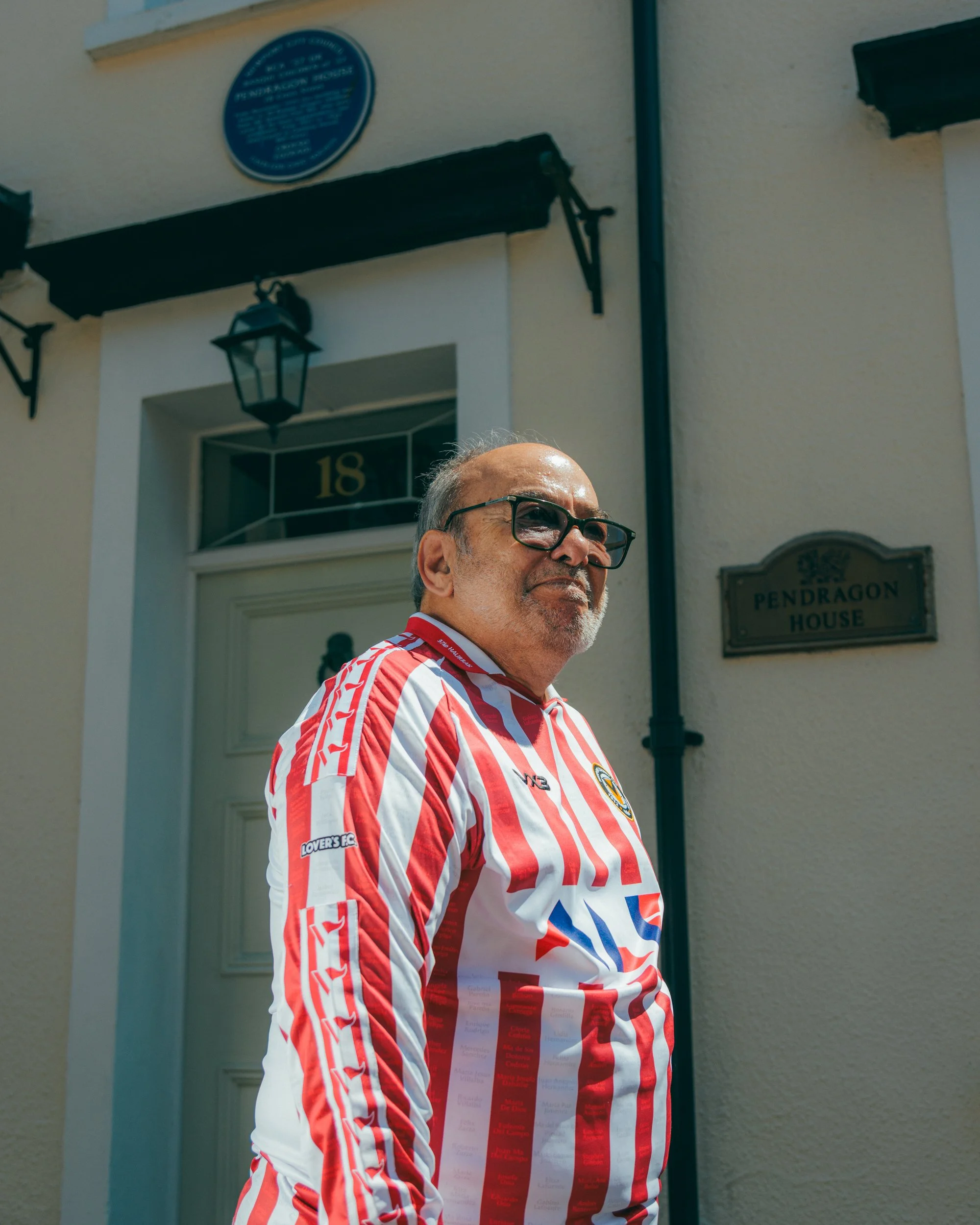Children of 37
a kindness that crossed an ocean. remember them. a war story. a love story. bilbao to south wales, follow their echo’s to REMEMBRANCE.
Client
lovers fc, athletic bilbao, newport county, VX3 APPAREL
date
18/07/2025
AGENCIES
COBALT FILM / lovers fc
campaign deliverables
BRANDED SHORT FILM (ENGLISH)
BRANDED SHORT FILM (TRANSLATED)
SOCIAL MEDIA ALTERNATE CUTS
from LIFE-ALTERING WAR to LIFE-LONG LOVE / THE DEEPER “CHILDREN OF 37” STORY WITH, stephen benevente
as filmmakers, we spend time self-learning and focusing on the main story at hand. THIS IS A STORY IN ITSELF AS FILMMAKERS, THAT THERE IS ALWAYS MUCH MORE TO ANY STORY THAT first meets the eye.
photography by chris hoare
AFTER SPENDING TIME DEVISING A DELICATELY BALANCED SCRIPT, in june of 2025, IT WAS TIME TO PUT OUR CAREFUL WORDS INTO VOICE. we took some time with STEPHEN BENEVENTE, A son of one of the children that fled the basque province in 1937, where he established a life in cAErleon, newport. HAVING TALKED TO HIM INFORMALLY, with full consent to have MICROPHONES on, WHAT WE CAPTURED WAS A LOVING TALE OF A SON’S ADMIRATION FOR HIS LATE FATHER. A REMINDER FOR WHY WE FILMMAKERS DEVOTE OUR LIVES TO THE STORY AT HAND. THIS IS WHAT YOU DIDN’T SEE IN OUR “CHILDREN OF 37” FILM. THIS IS HIS UNSCRIPTED STORY.
What happened in Spain, 1937?
”1937 was a horrific year during the Spanish Civil War, and one of the most significant events was the bombing of Guernica. That town was only a few miles from where these children lived.
It was a Monday afternoon when it happened — H*tler’s Condor Legion bombed the town. The official number of casualties has never really been confirmed.
That bombing left lasting trauma. These children — the ones who ended up in Britain — they never fully recovered. You could see it in them, even years later.”
Did your father share any stories of what it was like back in Bilbao?
”When he left Bilbao he was 12 or 13, so I wasn’t born yet, obviously. After that, he spent about six or seven years living a completely different life from anything he’d known before. That’s when he met my mother.
Language was a huge issue — he struggled to communicate. The Spanish he had didn’t help much, except with the people he already knew. It didn’t really work for him.
My mother was of Italian descent, so there was some similarity there that helped a little. But it wasn’t easy — her whole family was Italian, and he was really hitting a wall in terms of communication.
Then they got married.”
Did he ever talk to you, maybe later on, about his past?
”My dad? Yeah, a little bit. He was just a kid when he arrived in Britain. He did what kids do — he wanted to play football, enjoy himself. He was in school, but the lessons were very basic. Probably a continuation of what he’d done back in Spain.
I’m not even sure if he spoke Basque or Spanish — probably Spanish, as that’s what would’ve helped him survive.
WHO TOOK YOUR FATHER IN WHEN HE ARRIVED HERE?
”Mr GIBBON was brought in to work with the Basque children because he spoke fluent Spanish — he was ideal for the job. He was also football mad, so he coached the dance and football teams, and helped them achieve quite a bit of success. He was worth his weight in gold, really.”
he fostered your father?
”He fostered my dad, yeah. When the Second World War was about to break out, the children’s home just down the road from here was no longer available. Soldiers were going to be stationed there, so the children had to be moved out.
They were moved into a small terraced house on Cross Street — a typical four-bedroom house — and somehow they squeezed in around 12 kids. It was tight, and the authorities quickly realised that the repatriation plans weren’t going to work — many of the children’s parents were missing or dead. So they had to make longer-term arrangements.”
So he learned what he could, then got married. He found work — he was a gardener at a hospital, then a manual labourer. Eventually he became a supervisor for a team of men at the steelworks.”
What happened to your father after he decided to stay in Newport?
”He died of a heart attack at the age of 46.”
“It’s tragic, really. He’d been through so much — coming to Newport, not speaking the language, trying to build a new life, working hard, making friends, adjusting to everything — and then, just as he started to find some success… someone upstairs decided his time was up.
To have gone through a war, refugee life, years of rebuilding, and then to pass away so young — it was a terrible blow for him, and for our whole family.”
Did you admire him?
”Oh God, yes. He was a great man. He was quiet — deeply civilised. Everyone who knew him respected him for the way he lived, for his sincerity. "
“Just a once-in-a-lifetime kind of guy. A lovely man.”
stephen benevente talking to COBALT FILM in caerleon, newport.
-
Credits
PRODUCED BY COBALT FILM
dUAL Directed by ryan martin & william hancox
creative direction / neal heard
photography / chris hoare
runner assistance / mitch player
models / paula verdera, alonso navamuel & stephen benevente
voiced by stephen benevente
music by maxll
script DEVELOPMENT / ryan martin & NEAL HEARD
post production / ryan martin
fpv / william hancox
thematic & commercial assistance / mike kowalski
graphics / james killick
location assistance by athletic bilbao









